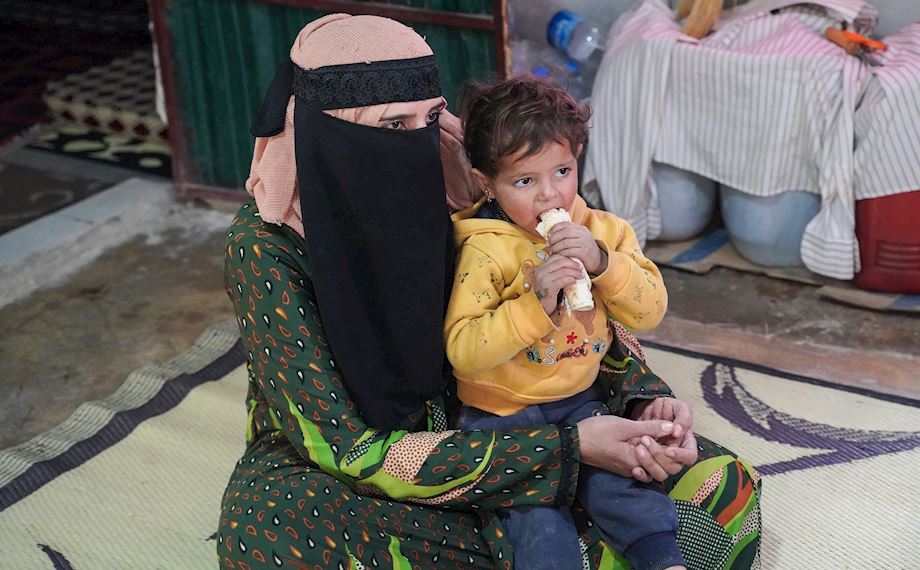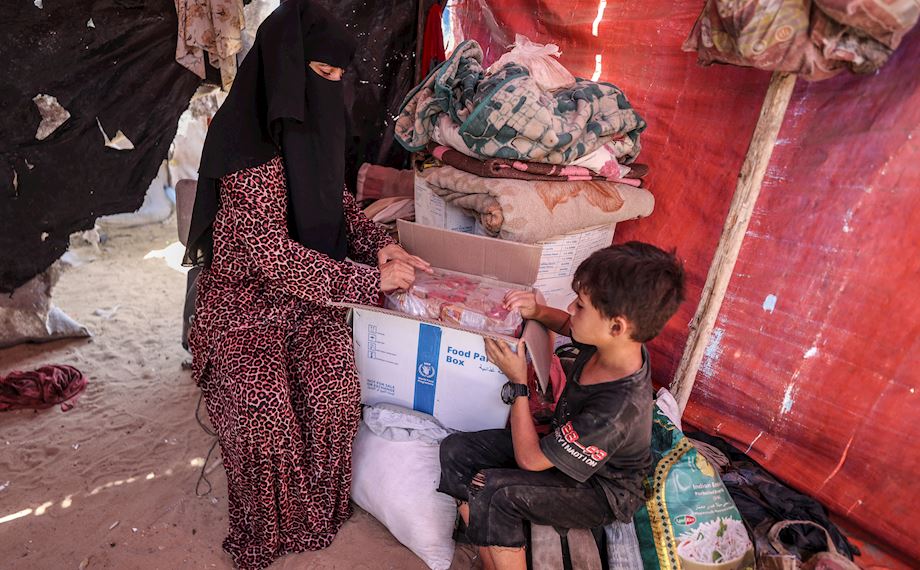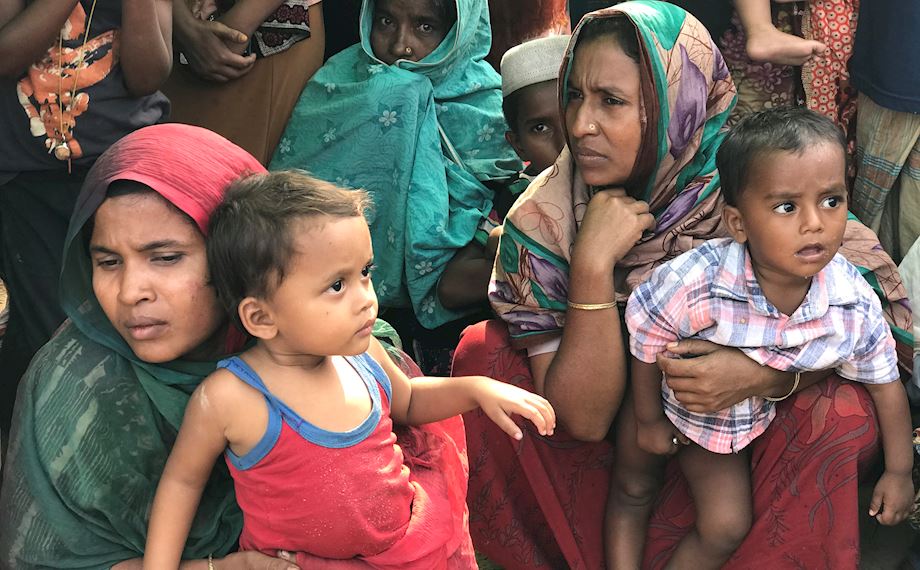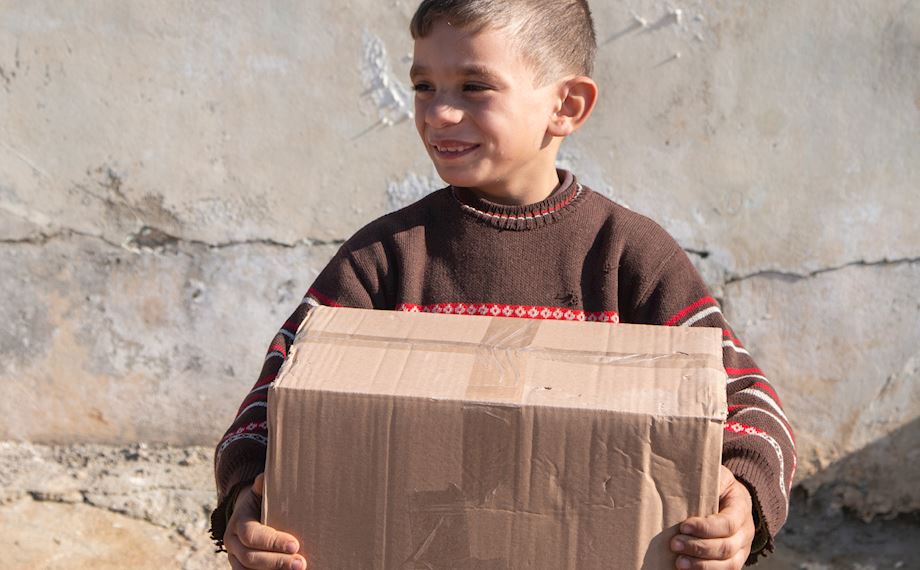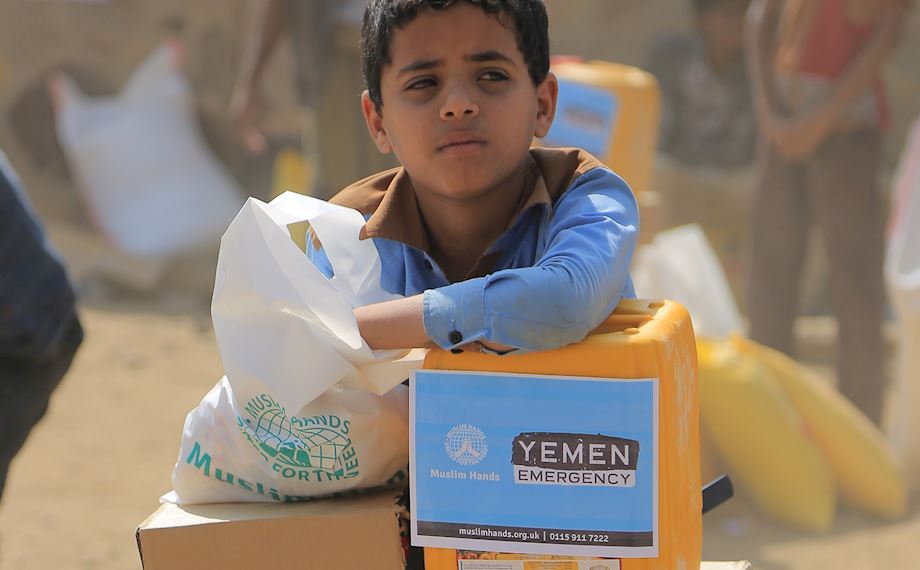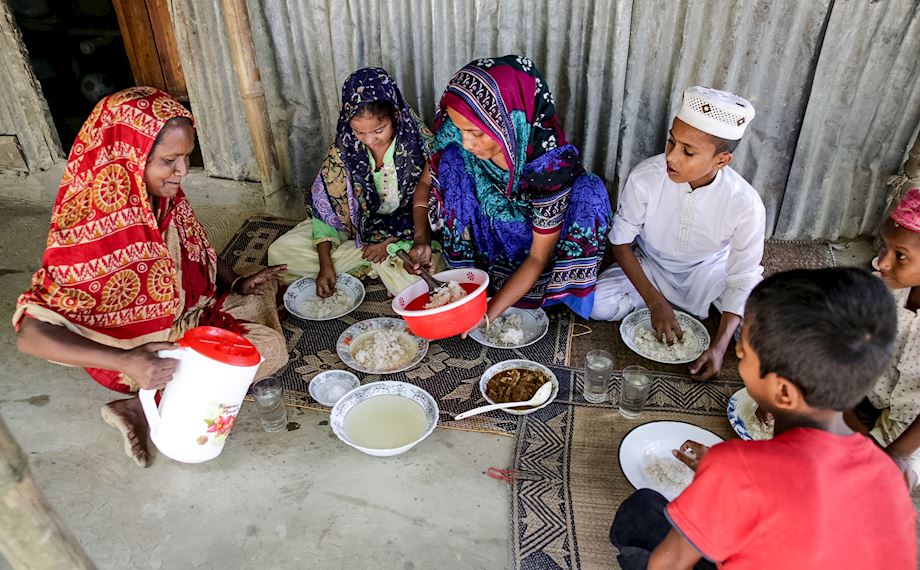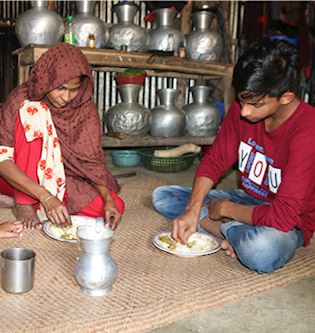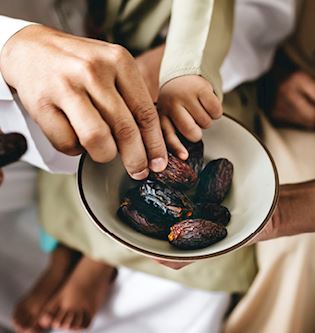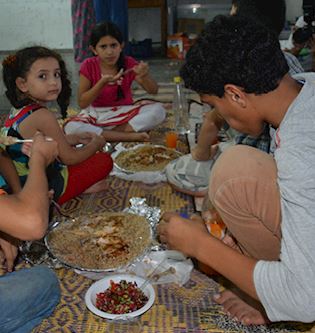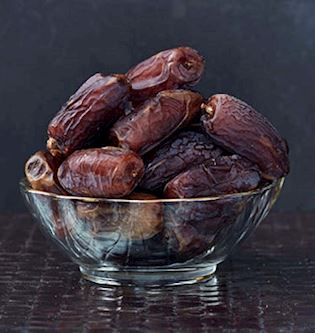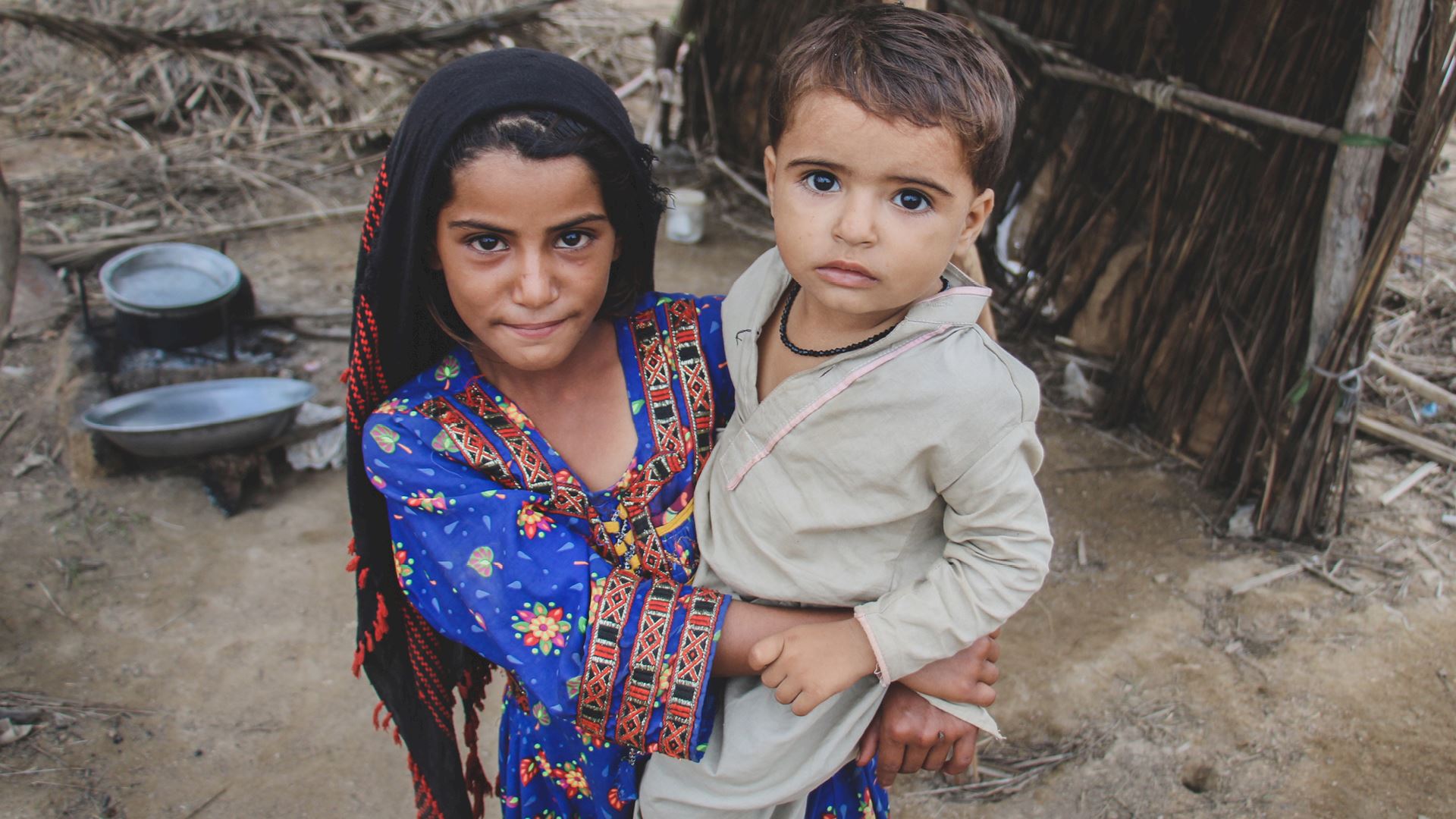
Let's Share
Iftar
Feed the fasting and multiply your rewards
Scroll Page
Give Iftar
Give Hope to the Ummah with Iftar
The Prophet (saw) said, 'Whoever feeds a person breaking his fast will earn the same reward as him, without anything being lessened from the reward of the fasting person'. [Tirmidhi]
The Prophet (saw) encouraged us to feed fasting Muslims during Ramadan, even advising the Companions (ra) to give just one date or a drink of water if that was all they could give. Every time you break someone’s fast, Allah (swt) multiplies the reward of your own fast, subhanAllah.
This Ramadan, families across the world will go hungry well beyond iftar time - unless we support them. Our global teams are distributing food in 23 locations, including Afghanistan, Yemen and Palestine. Your Zakat and Sadaqah will help us feed over 150,000 muslims by providing 2.5 million meals, in sha Allah!
Help us provide iftar to the most vulnerable in our Ummah, allowing them to break their fast while multiplying the blessings of your own. This Ramadan, we are distributing cooked iftars in 23 locations and offering Ramadan Food Packs starting from just £65—nourishing a fasting family for an entire month and ensuring their children stay healthy. You also have the opportunity to provide iftar to worshippers at the blessed Masjid al-Aqsa.
The Prophet (ﷺ) said, "Ramadan is the month of my Ummah" [Suyuti]. Share in the rewards of this sacred month by giving iftar to those most in need—orphans, widows, and refugees—and be their source of hope this Ramadan.
What's in a Ramadan Food Parcel?
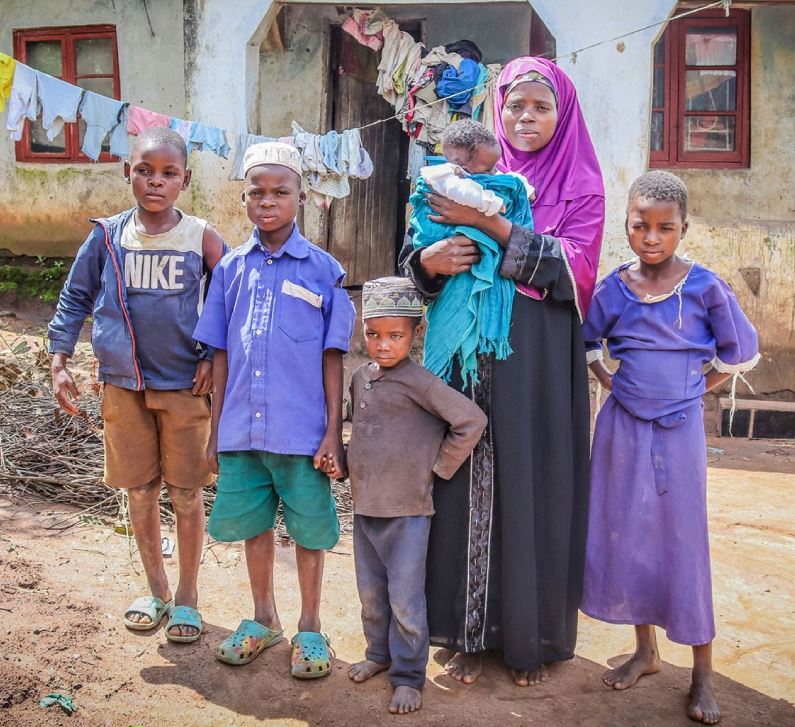
The Reality for Families Around the World who Cannot Afford Iftar
Every year Muslim Hands provides iftar for families that cannot afford to break their fast on their own, whether that be due to poverty or being displaced by war and climate change.
This Ramadan, we will be delivering Ramadan food packs to families in need all over the world, including Gaza and other emergency zones.
Read More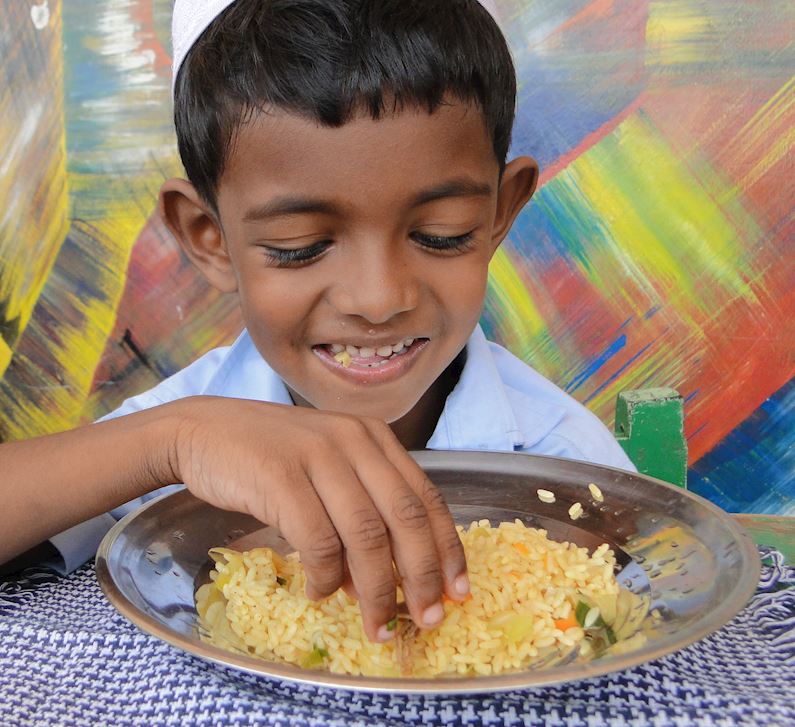
The Rewards of Giving Iftar
The Prophet (saw) encouraged us to sustain people who are fasting and share the blessings of Ramadan with the Ummah. Sharing iftar is thus a long-standing Islamic tradition which has become intrinsic to the holy month.
Many of us know that sharing food is a rewardable action - but did you know that there are specific rewards associated with giving iftar? Check out our blog to learn five new hadith about its incredible benefits!
READ MORE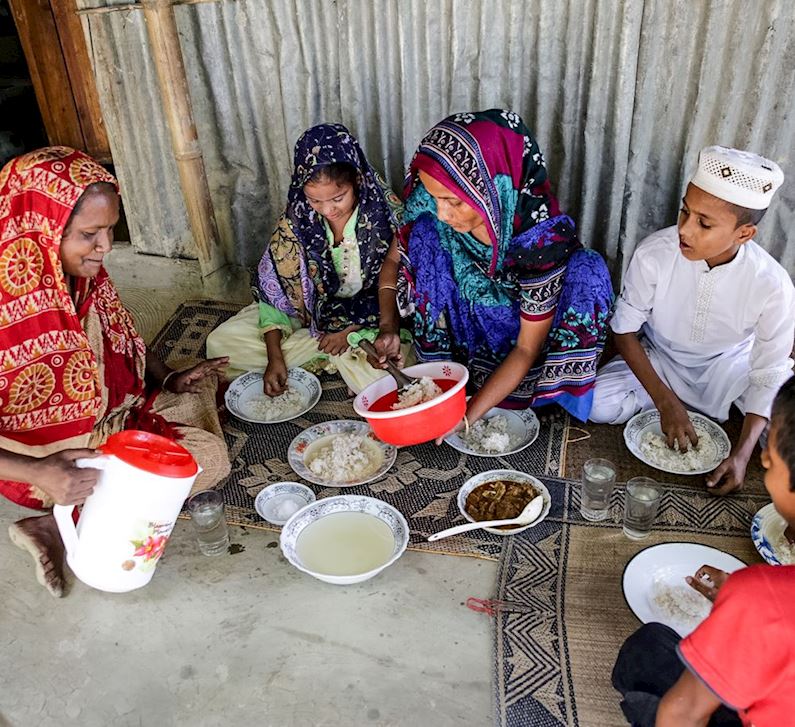
Fidyah and Kaffarah
When a person has either become extremely weak due to old age, or they are suffering from an illness which prevents them from fasting, they are not obliged to fast during Ramadan. Instead, if they have the means, they must feed a person in need two meals for every day of Ramadan. This payment is called Fidyah.
You can only give Fidyah if you will miss fasts due to illness and are unable to make them up later. So if you are suffering from a temporary sickness during Ramadan, you need to make these fasts up later.
If you break or miss a fast in Ramadan intentionally and without a valid reason, you must fast consecutively for 60 days. (This excludes days when it is forbidden to fast, such as Eid and when a woman is menstruating). If you miss a fast during these 60 days, you will need to start from the beginning, to ensure your 60 fasts are consecutive.
If you are physically unable to do this, you are required to pay the Kaffarah (expiation).
Give TodayGIVE IFTAR
Make the most of Ramadan
Essential tips and news
Established in 1993, Muslim Hands is an aid agency and NGO helping those affected by poverty, conflict and natural disaster in over 20 countries worldwide.




